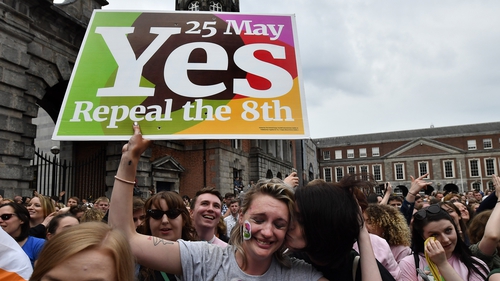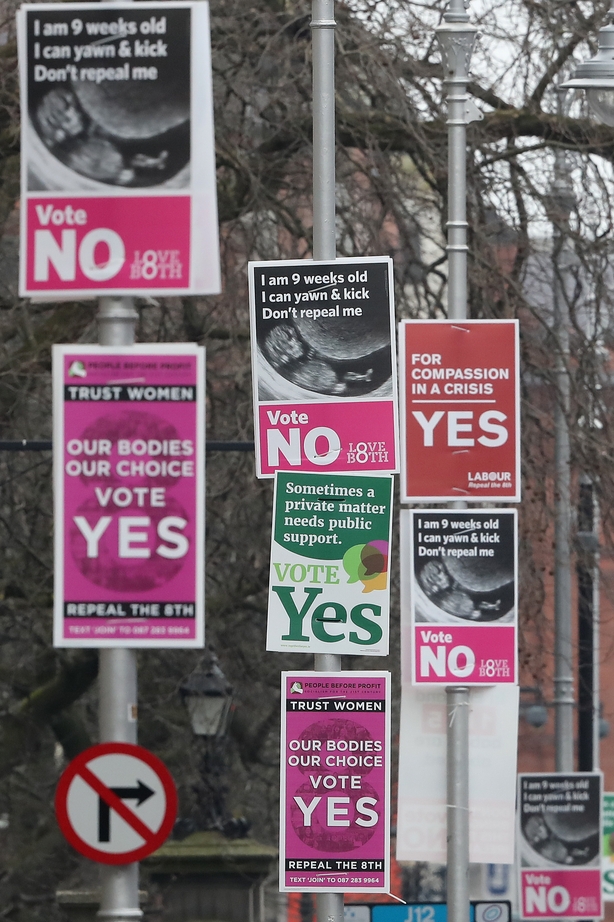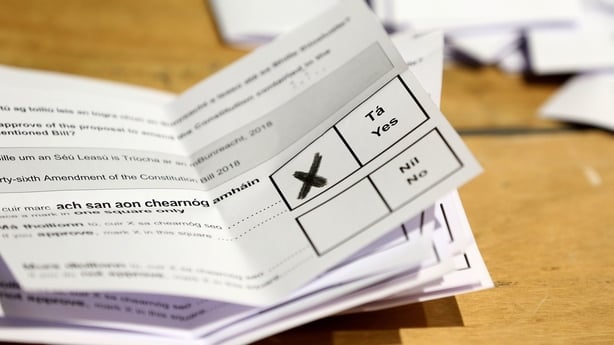
Malta looks to Ireland in campaign for legal abortion
by Ailbhe Conneely, https://www.facebook.com/rtenews/The second anniversary of the referendum on the 8th amendment has arrived, and has barely made a dent in the news coverage due to Covid-19.
Arguably, the appetite for the story is no longer there, but it is a topic that will never be far from the headlines.
Legislation underpinning the current service will be reviewed next year, for example.
Covid-19 has changed abortion services here.
The Health Service Executive has revised the model of early abortion care so that medical appointments can be provided remotely.
If the pandemic arrived prior to 2019, women would have been unable to travel for abortions, resulting in an increase in the number seeking abortion pills online.

The island of Malta, which prohibits abortion, is currently in that situation.
Activists for abortion services there say Covid-19 travel restrictions has led to vendors currently "peddling fake and potentially unsafe" abortion pills to women in Malta.
Women could previously travel abroad to abortion clinics. However, the cessation of passenger flights has resulted in fake pills being sold online.
The Women's Rights Foundation in Malta says six local pages selling abortion pills were created on one social media platform between the end of March and mid-May.
It has warned that such businesses are unreliable, dangerous and exposing women to risk.

Here in Ireland, the circumstances are quite different.
If the law had not changed, the Irish Family Planning Association says the situation of clients during restrictions would be unthinkable.
The IFPA says remote medical appointments mean those who currently need access to early abortion care only have to enter a healthcare facility in exceptional circumstances.
Campaigners for the introduction of abortion in Malta look to Ireland's referendum as an example of how the argument for services can be won.
Ireland emboldened Malta's abortion-rights activists to take the debate from social media to the mainstream prior to last year's European elections.
It has led to the establishment of similar campaign groups that formed in this country before the referendum.
One is Doctors for Choice.
The group published a position paper two months ago, calling for the decriminalisation of abortion, and for changes to the law to allow the provision of abortion services in Malta.
It is a debate we are all too familiar with here.

In the lead up to the referendum on the eighth amendment, there was some discussion about the swift pace of change in Ireland over the past 20 years. Compared to Malta, it is glacial.
Divorce was legalised there in 2011, the morning-after pill was introduced in 2016 and gay marriage was legalised in 2017.
It is hardly surprising that the Maltese population who are against the introduction of abortion services feel overwhelmed by the pace.

Polls conducted last year show 95% of Maltese do not agree with abortion in the first 12 weeks of gestation.
If a referendum were held there today, it is unlikely that the outcome would echo Ireland's referendum result two years ago.
Despite that, Irish activists are continuing to offer advice and support to their Maltese counterparts in preparation for when it happens.